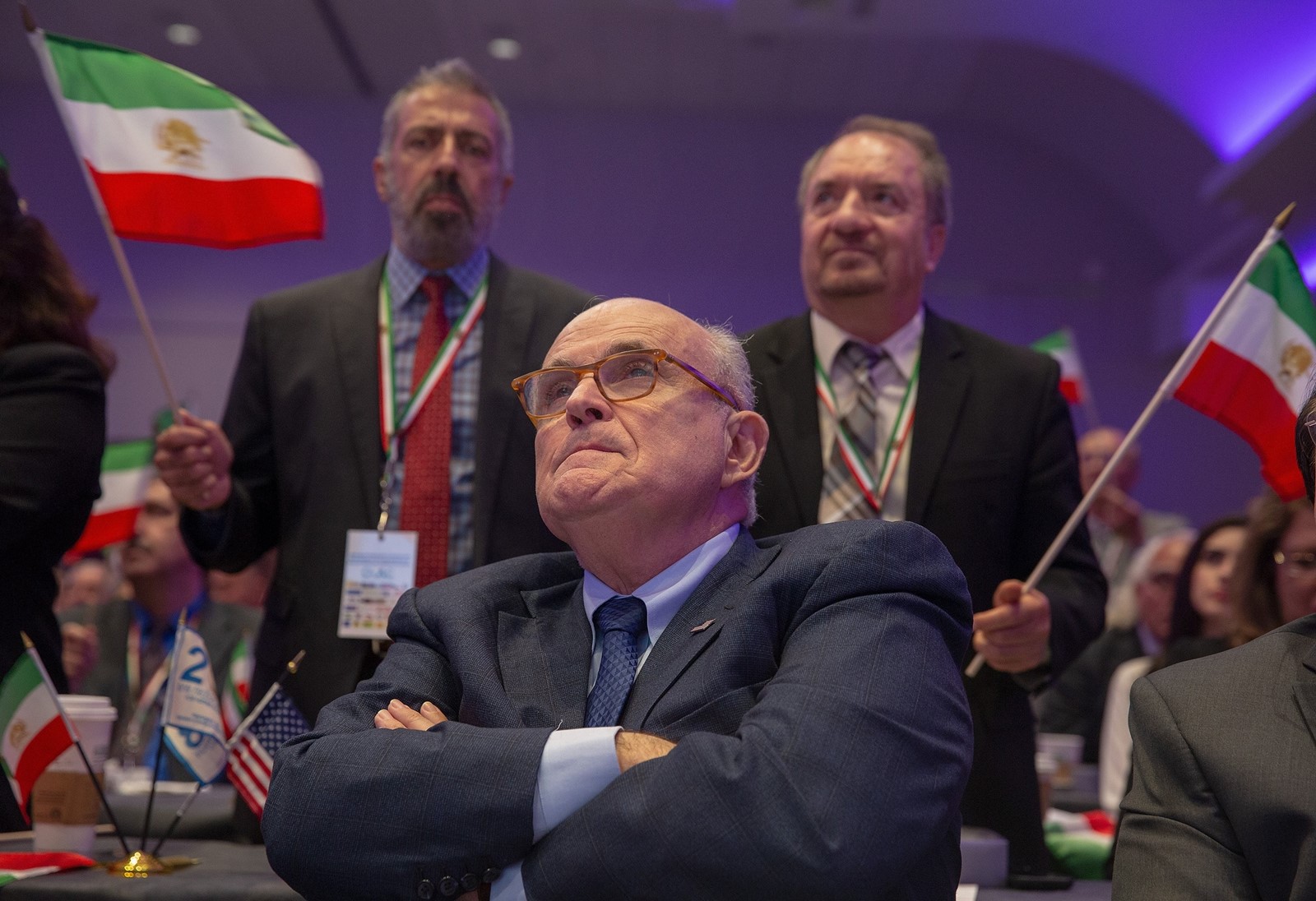Mueller’s tough choice on Trump
Seeking a subpoena this summer could spark a bitter court battle before vote.

That prompted a furious response from John M. Dowd, the president’s lead attorney at the time.
“I told him, in no uncertain terms, if that’s the route he took, he’d have a war on his hands,” Dowd recalled about the March meeting.
Trump’s team has increasingly signaled he will not voluntarily answer questions as the special counsel investigates Russian meddling in the 2016 election, whether the Trump campaign colluded with the Kremlin, and if Trump subsequently obstructed the investigation.
That may give Mueller little choice but to seek a subpoena if he deems Trump’s testimony critical. But getting one this summer almost certainly would spark a bitter court battle with the president’s lawyers before the November midterm elections, a prospect Mueller might want to avoid.
The impasse represents a defining juncture for a federal investigation that has clouded the Trump White House from its first day and led to criminal charges against 32 people since October, including 12 Russian intelligence officers indicted Friday in the hacking of files of Hillary Clinton’s presidential campaign, Democratic Party organizations and state election offices in 2016.
While Mueller has avoided the media — news agencies recycle year-old photos of him — Trump’s rage has only grown, with near-daily Twitter broadsides against what he calls a “rigged witch hunt.” Trump will meet Monday in Finland with Russian President Vladimir Putin, who denies the meddling even though U.S. intelligence agencies said he personally ordered the operation.
Trump’s attacks appear to have gained traction:
Rudolph W. Giuliani, who replaced Dowd, has become the president’s most vocal defender. On July 8, the former New York City mayor told a TV talk show that Trump would meet with Mueller only if the special counsel could show a “factual basis for the investigation,” a hardening of the White House position.
Legal experts questioned Giuliani’s attempts to set preconditions for a possible interview with Trump.
“That’s nonsense. It’s actually nonsense on stilts,” said Paul Rosenzweig, who worked with the independent counsel’s office that investigated President Clinton in the 1990s and is now a senior fellow at the R Street Institute, a nonpartisan think tank in Washington.
The only grounds required for obtaining a grand jury subpoena, Rosenzweig said, is whether a witness may have evidence germane to the investigation.
Some former prosecutors and other lawyers say they are puzzled that Mueller has not sought a subpoena to bolster his hand in securing Trump’s testimony.
“We’ve passed the point where a sensible prosecutor, even with the president, would have said: ‘OK, enough. Here’s your subpoena. See you in court,’ ” said Harry Litman, a
Shanlon Wu, a former prosecutor who worked with Mueller in the 1990s in the U.S. attorney’s office in Washington, said he doesn’t believe Mueller wants to preside over a multi-year investigation.
“I think Mueller is very conservative in terms of his approach, and he would like to not create a big legal battle” over a subpoena, Wu said. “I think his end goal is, he wants to be seen as having done this very quickly and effectively.”
Many legal experts believe a subpoena for the president’s testimony would be upheld. They point to the Supreme Court’s unanimous decision on July 24, 1974, which ordered President Nixon to hand over taped conversations and other materials subpoenaed by the Watergate special prosecutor.
The Oval Office tapes revealed that Nixon had attempted to cover up crimes committed by his aides. The resulting public uproar helped forge bipartisan support for impeachment hearings already underway in Congress, prompting Nixon to resign 16 days after the court ruling.
Clinton also was subpoenaed, but under different circumstances — and with a different result.
Two decades ago, Kenneth W. Starr, the independent counsel who investigated Clinton’s financial dealings as governor of Arkansas, and later his sexual relations with a White House intern, Monica Lewinsky, negotiated for months to question the president under oath.
Starr finally obtained a subpoena in July 1998 to compel Clinton to testify before a grand jury. No sitting president had ever done so.
After further negotiations, the two sides agreed to three conditions: The questioning would be at the White House, not the courthouse. Clinton’s lawyers, who would be barred from a grand jury room, would be present. And Clinton would only be questioned about the Lewinsky matter.
Starr then withdrew the subpoena, and Clinton testified for four hours from the White House on closed-circuit TV on Aug. 17. That night, he admitted on national TV to an “inappropriate relationship” but denied he had asked anyone to “lie, hide or destroy evidence.”
Starr’s subsequent report to Congress accused the president of giving “perjurious, false and misleading testimony” to the grand jury.
That December, the lame-duck House Republican majority voted to impeach the president. He was later acquitted in the Democratic-led Senate and served out his term.
Mueller’s office declined comment for this story. Another lawyer for the president, Jay Sekulow, said only that “we continue to maintain a professional dialogue with the special counsel.”
In public, however, the scorched-earth attacks by Trump and his allies have undercut support for Mueller’s investigation.
A Washington Post-Schar School poll released July 11 showed support for Mueller’s handling of the case dropping from 58% in November to 49% now. Disapproval rose from 28% to 45%.
Negative ratings for the Mueller inquiry have risen most among Republicans — 78% now disapprove, according to the poll — but they’ve also inched up among independents. Disapproval among that group reached 43% this month, up from 30% in November.
Neil Newhouse, a Republican pollster, said Trump is unlikely to pay a political price if he refuses an interview
“It’s not going to impact his support or his disapproval one iota,” Newhouse said.


